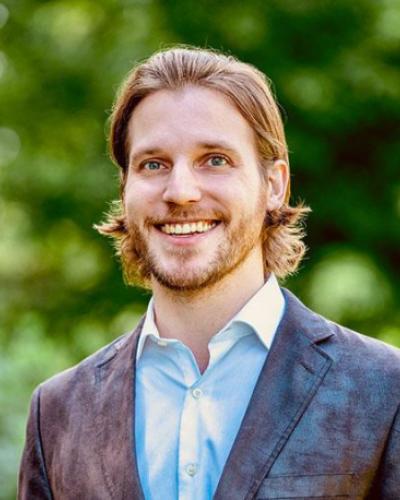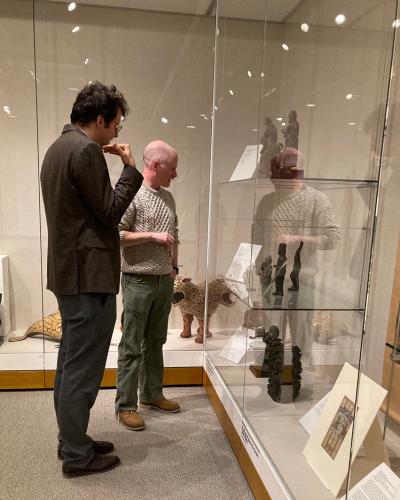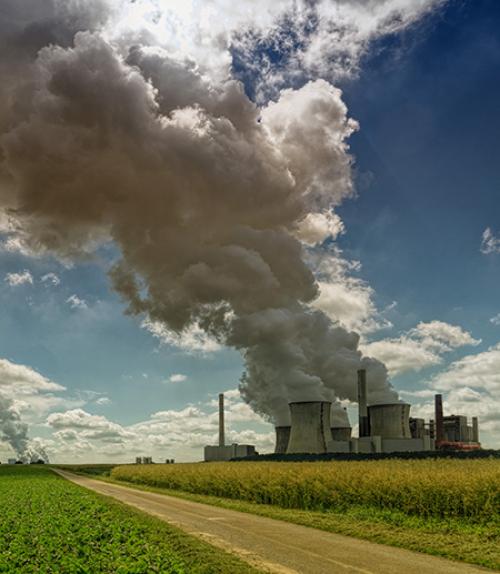On the brink of ecological collapse, how do we think, write and speak about the various forms of energy we encounter? The Society for the Humanities’ annual fall conference, Oct. 18 and 19, will examine the human relationship to energy in its myriad forms. The conference will serve as a kick-off for the 2019-20 Society for the Humanities year of Energy, the focal theme for the Society Fellows’ interdisciplinary research and courses. Free and open to the public, the conference will be held at the A.D. White House on the Cornell campus.
Conference keynote speaker Imre Szeman says that the emerging field of “Energy Humanities” asks scholars to add a consideration of energy to everything they study.
“Energy is too influential a force not to be included in how we understand politics, society, and the individual; global conflict and the shape of the economy; and the form taken by our desires, affects, imaginings, and sense of ourselves,” says Szeman, Waterloo University professor of communication arts. Humans are creatures “whose actions, capacities, and belief-systems have been molded for two centuries by access to an ever-increasing amount of energy. Until we begin to grapple with this, I don’t think we will ever understand how to reshape ourselves into subjects able to effectively deal with climate change.”
Caroline Levine, David and Kathleen Ryan Professor of Humanities and chair of the English department, kicks off the conference on Friday with a talk, “The Humanist’s Guide to a Genuine Sustainability,” followed by a keynote lecture, “Toward a Marxian Energetics,” by Benjamin Kunkel, writer and co-founder of n+1 magazine. The second day of the conference will feature Szeman’s keynote lecture, “Eight Principles for a Critical Theory of Energy.”
A panel discussion, “Nuclear Energy and Ruination,” will feature Yu-Fang Cho, Society Fellow at Cornell University and professor of English and women’s, gender, and sexuality studies and co-coordinator of Asian/Asian American studies at Miami University. Cho is devoting her fellowship year to post-WWII transpacific nuclear modernity and its effects on Asian and indigenous peoples and ecologies, which she describes as a public humanities project.
“We need to focus on storytelling, on educating the public on the lost histories of the bombs and bomb tests in the Asia Pacific,” she says. Cho considers culture itself to be an energetic site, where memories and histories are being remade, appropriated, and where it is possible to “redeploy” these energies toward a new future. To her, “energy” applies not only to nuclear bombs and the technologies that make them possible, but also to the effort of remembering these acts and their aftermaths.
Cho’s panel participation, “Bikini (Re)traces: The Strange Bodies of Transnuclear Modernity,” will focus on bringing awareness to these forgotten histories through the analysis of cultural symbols like Godzilla, Hello Kitty, and robots.
A second panel discussion, “Animal Energy,” will feature Athena Kirk, Cornell assistant professor of classics and Faculty Fellow at the Society. Her research project at the Society considers how animals are used and represented as sites and sources of energy in antiquity. Kirk sees animals in ancient Greece as “intermediaries, a source of communicative power” between humans and animals, and between humans and the gods.
Kirk will also give a presentation, “Brutes to Flutes: Ancient Greek Animal Powers,” that will focus on the arts ancient humans produced using animal products, such as lyres made from tortoise shells and writing on animal skins. She will examine where the animal itself plays into such art. Kirk is also interested in how stories like the creation of the lyre from the tortoise might relate to more corporeal transfers of energy—such as how meat consumption transforms animal energy to human energy, for example. She sees energy as both literal and figurative in this ancient Greek context, a power-source and a spark for creative inspiration.
Other Fellows at the Society for the Humanities from a range disciplines across the humanities are also studying energy, with projects such as the use of hay as a form of energy, human energy, mania, and psychosis, zombies and spiritual labor, and the social life of water and climate change in indigenous cultures, among others. For more information of this year’s Energy fellows, see the Society’s website: https://societyhumanities.as.cornell.edu





